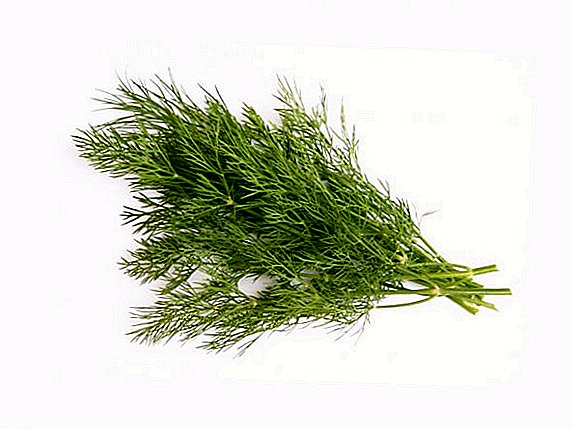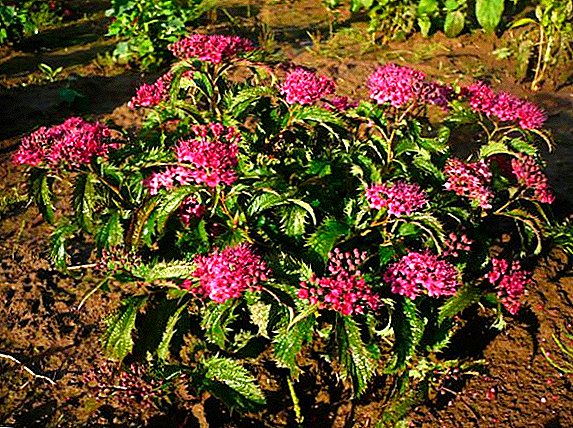 Birds are as susceptible to various diseases as humans. No exception are pigeons. Epidemics can kill these beautiful birds, so they should be vaccinated. Let us know what diseases and how pigeons are vaccinated.
Birds are as susceptible to various diseases as humans. No exception are pigeons. Epidemics can kill these beautiful birds, so they should be vaccinated. Let us know what diseases and how pigeons are vaccinated.
Why do you need vaccination pigeons
Domestic pigeons are able to fly long distances and, returning back, can infect all the inhabitants of the pigeon house. The larger the population, the higher the risk of an epidemic. From some diseases, birds can die even when they are helped. A particularly dangerous period in which an outbreak of epidemics can occur is considered to be off-season, since temperature fluctuations and increased humidity contribute to the development of pathogenic bacteria.  The reason for the infection of a bird can be various factors: water, food, another bird, insects. Therefore, you should also vaccinate those individuals that do not fly anywhere. For exhibition copies that are transported and in contact with other individuals, vaccination is particularly relevant.
The reason for the infection of a bird can be various factors: water, food, another bird, insects. Therefore, you should also vaccinate those individuals that do not fly anywhere. For exhibition copies that are transported and in contact with other individuals, vaccination is particularly relevant.
Did you know? The wild gray dove was tamed by people more than 5 thousand years ago, and perhaps earlier. Pigeon mail was often used in antiquity and the Middle Ages. The ancient Greeks transmitted with its help information about the winners of the Olympic Games.
Preparation of pigeons for vaccination
Only healthy individuals should be vaccinated. If a bird is weakened, it is necessary to help its body strengthen, strengthening the diet.  Since the vaccine weakens pigeons, it is necessary to prevent:
Since the vaccine weakens pigeons, it is necessary to prevent:
- sanitize bird housing. In it, you first need to clean up well, and then use disinfectants. In the warm period, it is most reasonable to use liquid preparations (for example, a solution of 1% formalin or 2% caustic sodium) or a smoke bomb “Deutran”. In the cold period, dry bulk antiseptics should be used. Disinfection should be carried out in the absence of birds and an hour after it is necessary to remove the remnants of the means used. After that, you need to arrange a good airing to avoid poisoning pets;
- get rid of worms (for example, the drug "Albendazole");
- feed birds with vitamins and minerals to strengthen their health. The same means continue to give some time after vaccination.
Important! If you find a sick bird in the pigeon house, it should be immediately isolated from others and placed in quarantine. A sick individual can be detected by a change in behavior: the bird eats poorly, does not fly, hides in the corners, is disheveled and has an elevated temperature. The excrement of such a bird is changed, and discharge can be observed from the mouth, eyes and beak. You should contact the vet - perhaps the bird can be cured. The disease may not be contagious.
Vaccination pigeons
Young individuals are most often subject to infectious diseases. Therefore, young pigeons should be vaccinated against diseases that can be fatal. 
From the knives
Hipster (another name - Newcastle disease) is the most common disease in pigeons. In most cases (about 80%) the disease ends in the death of a bird. Therefore, it is important to get vaccinated in time. Consider the most popular preparations for vaccinations against the wrist.
Avivak (or Bor-74)
 This is the most commonly used drug. Externally, it is a white emulsion. It is produced from chicken embryos in combination with chemical components and oils. This emulsion is packaged in bottles of glass and plastic in different doses. This tool develops immunity to the causative agent of the wibs 4 weeks after vaccination. The drug is stored for 12 months.
This is the most commonly used drug. Externally, it is a white emulsion. It is produced from chicken embryos in combination with chemical components and oils. This emulsion is packaged in bottles of glass and plastic in different doses. This tool develops immunity to the causative agent of the wibs 4 weeks after vaccination. The drug is stored for 12 months.
Vaccines are vaccinated against birds aged 90-120 days. Vaccination is carried out by introducing this tool in the neck or chest, while observing all disinfection measures. Before use, shake the bottle until a homogeneous mass. The drug is administered using disposable syringes or sterilized by boiling for 15-20 minutes.
"La Sota"
Another well-known remedy for the prevention of knuckles is the drug "La Sota". Externally, it is a dry, powdery substance of a light brown color or in the form of a pinkish pill.
For the proper keeping of pigeons at home, it will be useful for you to learn about the features of breeding and feeding pigeons, as well as how to keep pigeons in winter and how to make dovecote yourself.
The vial contains 500, and the vial contains 1500 or 3000 doses. The shelf life of the vaccine is one year. Store in a dry and dark place at a temperature of + 2 ... +10 ° C. When using this vaccine, immunity is developed 14 days after vaccination and lasts for at least 3 months. This drug is completely harmless.
The first vaccination is done to pigeons when they reach the age of 30-35 days. After vaccination, birds can become lethargic, lose their appetite, but after a while this state passes. Do such a vaccination twice a year, usually in the spring and autumn. 
"GAM-61"
Vaccination with the use of this drug is carried out twice a year. This procedure is carried out by instillation into the nose or watering. Usually, preference is given to instillation into the nose, since this procedure more accurately maintains the dosage. The ampoule of the vaccine is dissolved in 2 ml of boiled water, the temperature of which is about 20 ° C. Then, the resulting solution with a pipette instilled in each nostril pigeon one drop. When instilled into one nostril of the other for the best passage of the solution is closed with a finger.
Did you know? The genus of pigeons includes 35 species. Most of them live in the tropics. There are about 800 domestic breeds of this amazing bird.
When watering one ampoule "GAM-61" is dissolved in 300 ml of boiled water at room temperature. On the eve of the water add 15 g of skimmed milk powder. The resulting solution is given from a proportion of 15 ml per pigeon. The solution is poured into thoroughly washed and disinfected drinkers. The vaccine is designed - 1 ampoule for 20 birds. Before serving the GAM-61 solution, pigeons are kept without drinking and water for about 5-6 hours.
Video: pigeon vaccination from wiggles
Salmonellosis
Vaccination against salmonellosis should be carried out twice a year. It can be used from 6 weeks of age. You can use the vaccine "Salmo PT" (50 ml), which contains 100 doses (0.5 ml per individual). Vaccination is done with a sterile syringe under the skin on the neck. Before this, the vaccine is allowed to warm to room temperature and shake well.
Learn about the peculiarities of home keeping of such breeds of pigeons, such as: duty, Armavir, Kasan, Nikolaev, Turkish, fighting, Baku fighting, Turkmen fighting, Uzbek, peacock pigeons.
Shelf life is 1 year from the date of manufacture. Store in a dark and dry place. In case of detection of damage to the vial, change in the color of the mass inside it, the drug should not be used, and in order to inactivate, it is necessary to boil the ampoule. This vaccine produces immunity to pathogens of salmonellosis, which is formed a few days after re-vaccination and maintained for 90 days. Vaccinations are recommended to carry out twice with an interval of 21 days. 
From smallpox
Vaccination against smallpox is relevant in places of its distribution. It protects pigeons from this disease for a whole year. Immunity after vaccination against smallpox appears in a week. Young animals should do this procedure at the age of 8-10 weeks and not earlier than 6 weeks of life.
A live smallpox vaccine consists of a vial of dry matter and a vial of solvent. They have a special injector with two needles with hollows. The number of doses depends on the packaging and can range from 100 to 2000. Shelf life - 18 months from the date of manufacture.  The following steps are taken during vaccination:
The following steps are taken during vaccination:
- The solvent is poured into a container with a dry fraction and shaken until dissolved.
- A pigeon's wing is opened and a leather membrane is found into which an injection will be made. In some birds, it is covered with feathers. In this case, they must be removed so as not to interfere.
- We lower the needles into the vaccine solution and collect this liquid in the hollows of the injector needles.
- Carefully, avoiding injury, insert the needles into the wing membrane so that the vaccine penetrates the skin.
 Timely vaccination will help prevent diseases dangerous to the life of your pigeons. This procedure is performed only for healthy birds. To make it easier for the birds to carry it, they should sanitize their housing and take measures to improve their health.
Timely vaccination will help prevent diseases dangerous to the life of your pigeons. This procedure is performed only for healthy birds. To make it easier for the birds to carry it, they should sanitize their housing and take measures to improve their health.Poultry farmers reviews













